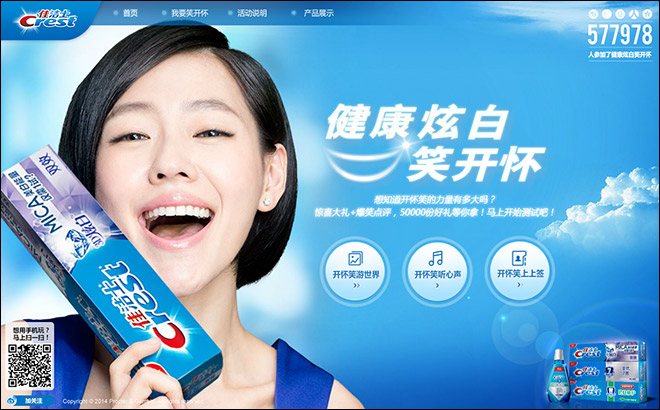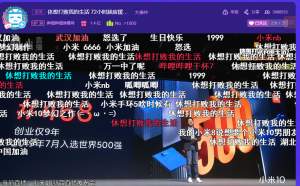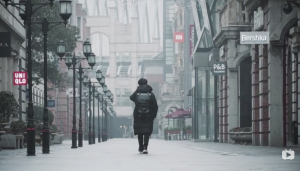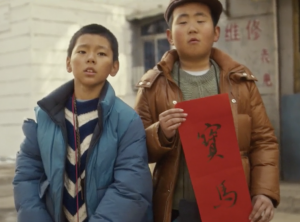
Digital whitening of celebrity spokesperson Dee Hsu’s teeth was considered to be false advertising
The Chinese legal environment for brand integration is not entirely clear-cut, since existing regulations largely focus on more traditional forms of advertising. In theory, brand marketing activities such as product placements are considered a type of advertising, and as such should be regulated in accordance with the Advertising Law and associated regulations.
The 2015 Ad Law
China’s Advertising Law saw a major overhaul in 2015 as part of an effort to increase consumer protections, following two decades of rapid development in the industry. When the previous version of the law was introduced in 1994, China’s advertising industry was worth 20 billion RMB (US$2.8 billion). By 2015, it was valued at 560 billion RMB (US$79.2 billion), making it the second-largest in the world after the United States.
Among the restrictions enforced by the Advertising Law that are most relevant to brand owners:
- Content rules that apply to other areas of the media can also be applied to advertising. The law includes a list of specific prohibitions — for example, advertising may not damage “social stability” or the “dignity of the state,” depict obscene, pornographic, superstitious, or violent content, or include portrayals of gambling. There is also a blanket provision that can extend to anything else prohibited by Chinese laws and regulations, so brand owners should also familiarize themselves with rules for TV content, internet censorship, and short video.
- The law states that advertisements should be clearly marked as such, which risks brand integration activities falling in a gray area.
- Celebrities and brand spokespersons may be held liable for false claims regarding the products that they endorse and can face up to a three-year ban for violations. There are also restrictions on how they can endorse certain types of products, such as health foods.
- Children under the age of 10 are not allowed to endorse products at all, even, for example, via product placements on a TV show.
- The term “false advertising” covers both false and misleading claims.
- The use of superlatives “top,” “best,” and “leading” is not allowed, and many more “extreme” words are banned from advertising.
- Ads for alcoholic beverages may not show the actual act of drinking.
- Ads for products in certain categories must be approved by Chinese authorities. These products include pharmaceuticals, medical treatments and devices, pesticides, and dietary supplements and health foods.
- Enforcement activity has been on the rise to combat deceptive practices. In 2015, P&G’s Crest brand was fined nearly $1 million for digitally whitening a celebrity’s teeth in its toothpaste ads.
Internet Advertising Regulations
In 2016, authorities issued interim regulations covering online advertising that supplemented the Advertising Law. The regulations can be interpreted to cover any content that appears online, including video, and platform operators can be held responsible for the ads they carry, along with brand owners.
TV Ad Restrictions Push Brand Integration
In 2011 Chinese regulators banned commercials during TV dramas, limiting ads to running back-to-back in between programs. That spurred brand owners to use more creative advertising strategies that link marketing with content, and these practices have spilled over into online video programming as well.
Divided and Shifting Regulatory Oversight
2018 saw major changes in how China’s media and entertainment industries were regulated. Previously, a government body under the State Council, known as the State Administration of Press, Publication, Radio, Film & Television* (SAPPRFT), supervised most areas of content. SAPPRFT has since been replaced by three separate entities: the National Film Bureau, the State Administration of Press and Publication, and the National Radio and Television Administration.
The first two are under the Communist Party’s Propaganda (aka “Publicity”) Department, while the radio and television regulator remains subject to State Council jurisdiction. (However, its head, former SAPPRFT director Nie Chenxi, is also a deputy director of the Propaganda Department.) A separate entity, the Cyberspace Administration of China, manages the internet under the supervision of a Communist Party commission led by Xi Jinping.
Content Censorship Risks
In addition to the written (and unwritten) rules, brand owners must remain aware of the risk of censorship, which can increase with the popularity of the content in question.
There are no guarantees that content will not be pulled without advance notice, and the recent changes in oversight have been accompanied by a rash of content crackdowns. Just about every entertainment format — from variety shows to costume dramas to films to video games to music and podcast apps — has been subject to heightened scrutiny. As a result, brand integrations depending on censored content may easily be forced to disappear without recourse for the brand owner.
The hottest show in China in 2018, iQiyi’s imperial costume drama “The Story of Yanxi Palace” (延禧攻略) came under fire earlier this year for allegedly glorifying luxurious lifestyles and court intrigue, themes incompatible with Beijing’s renewed focus on promoting Socialist core values. More recently, an anticipated summer blockbuster, big-budget war epic “The Eight Hundred” (八佰), was pulled from its slot as the opening film at the Shanghai International Film Festival, and days later had its July 5 nationwide release canceled, apparently for political reasons.
But even when content comes under fire, it is not necessarily doomed to oblivion. After the popularity of talent competition “Rap of China” (中国有嘻哈/中国新说唱) and related rapper controversies spurred an official crackdown on shows featuring hip-hop music, tattoos, and “non-mainstream culture,” it was assumed that the iQiyi show would be wiped from the streaming site forever. However, subsequent seasons have aired under a new Chinese name, with a more sanitized, “positive” atmosphere and all tattoos kept covered.
The TV and video sector is generally seen as more open than cinema, and thus more attractive to brands, but is still subject to very specific dictates. As Beijing celebrates the 70th anniversary of the founding of the People’s Republic of China, TV broadcasters and streaming sites have been instructed to avoid airing “overly entertaining” costume dramas and “idol” series during the 100-day period that began on August 1, with an ensuing rush to release the finales of online shows.
That is bad news for brands involved with those shows that had anticipated a longer time frame to reach viewers via product placements and cross-promotional activities.
—-
*SAPPRFT was established in 2013 and merged the State Administration of Radio, Film and Television with the General Administration of Press and Publication






